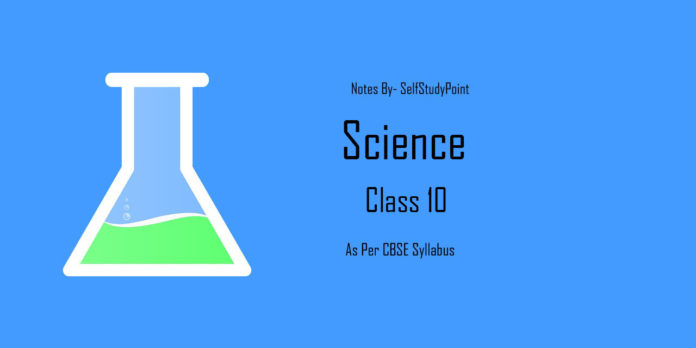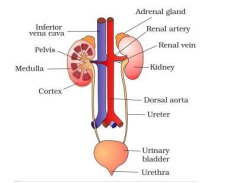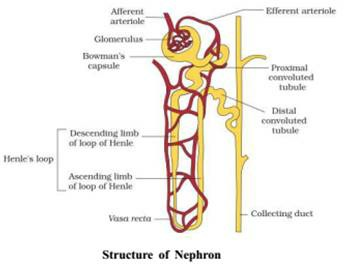
Excretion in human beings:
The process of the removal of the harmful metabolic wastes from the body is called excretion. Excretory system of human beings includes:

- A pair of kidney
- A Urinary Bladder
- A Urethra
- A pair of Ureter
Process of Excretion
Renal artery brings in blood containing waste substances to the kidneys. Kidney filters blood. Urine produced in the kidneys passes through the ureters into the urinary bladder where it is stored until it is released through the urethra.
The function of Kidney:
It removes waste product from the blood i.e., urea which is produced in the liver.
Nephron:
Each kidney has a large number of filtration units called nephrons. The nephron is the structural and functional unit of Kidney.
Mechanism of Urine Formation:
The Urine formation involves three steps:
Glomerular Filtration:
Blood is filtered from the glomerulus into Bowman Capsule of the nephron. This filtrate passes through the tubules of the nephron.
Tubular re-absorption:
Now, useful substances from the filtrate Like, glucose, amino acids etc. are reabsorbed by the capillaries surrounding the nephron into the blood.
Secretion:
Urea, extra water and salts are secreted into the tubule which open up into the collecting duct & then into the ureter.
Hemodialysis:
The process of purifying blood by an artificial kidney. It is meant for Kidney failure patient.

Excretion in Plants
- Oxygen released during photosynthesis.
- by transpiration
- Wastes may be stored in leaves, bark etc. which fall off from the plant.
- Waste products stored as gums, the resin in old Xylem
- Plants excrete some waste into the soil around them.

